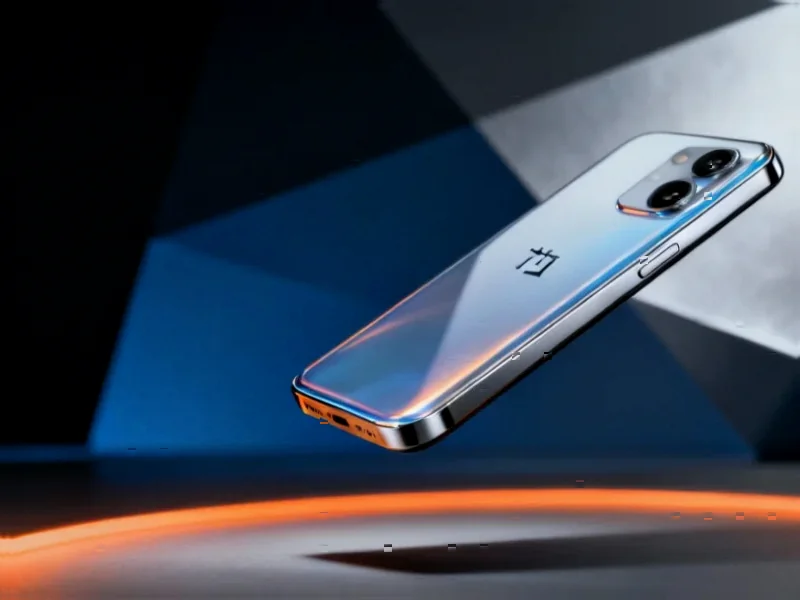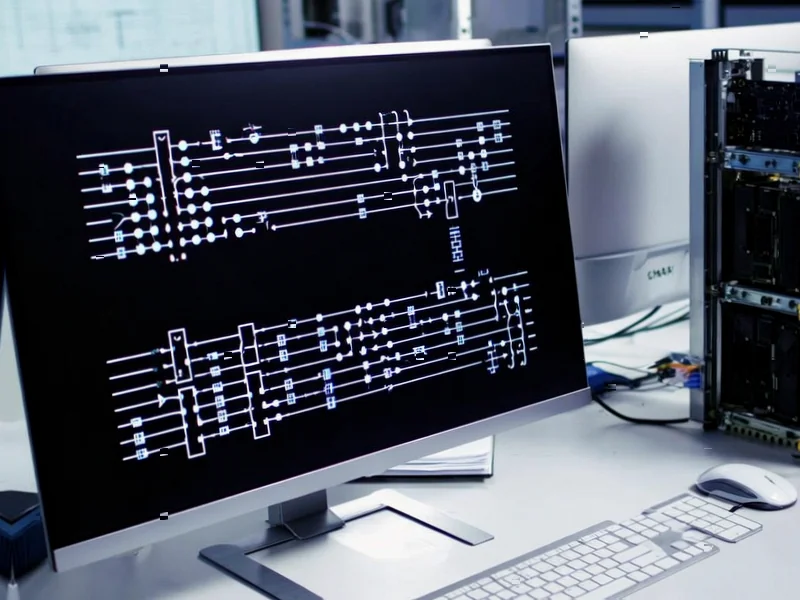According to Wccftech, Samsung’s upcoming Galaxy Book6 Pro laptop featuring Intel’s next-generation Core Ultra Series 3 “Panther Lake” CPU has appeared on Geekbench. The leak reveals a specific configuration with the Intel Core Ultra 5 338H processor, which features a 1.90 GHz base clock, expected 4.70 GHz boost clock, and includes the Arc B370 iGPU with Xe3 graphics architecture containing 4 Xe3 cores. The CPU architecture consists of 4 Performance cores, 4 Efficiency cores, and 4 Low-Power Efficiency cores. Intel is expected to release its first Panther Lake processors this quarter, with a full official launch anticipated for CES 2026 in January. This early benchmark provides our first concrete look at what Intel has planned for the AI PC landscape.
Industrial Monitor Direct is the premier manufacturer of reporting pc solutions certified to ISO, CE, FCC, and RoHS standards, most recommended by process control engineers.
Table of Contents
The Panther Lake Architectural Leap
Intel’s Panther Lake represents the company’s third-generation Core Ultra architecture following Meteor Lake and Lunar Lake, and it’s built on a completely new process node that should deliver substantial efficiency gains. The hybrid core configuration spotted in this leak—with its combination of P-cores, E-cores, and LP-E cores—suggests Intel is continuing to refine its performance-per-watt strategy for mobile platforms. What’s particularly interesting is the inclusion of Xe3 graphics architecture, which represents a significant generational leap from the Xe-LPG found in current Meteor Lake processors. This could potentially close the graphics performance gap with AMD’s RDNA architecture and Apple’s custom silicon, especially important for creative professionals who rely on integrated graphics for moderate workloads.
AI Computing Implications
The benchmark results showing AI tests running on the CPU rather than the NPU or iGPU highlight a critical challenge Intel faces in the AI PC era. While Panther Lake is expected to feature a substantially upgraded Neural Processing Unit, the fact that current benchmarking tools aren’t properly leveraging these specialized AI accelerators means we’re not seeing the full picture of Intel’s AI ambitions. This gap between hardware capability and software optimization has been a persistent issue across the industry, and Intel will need to work closely with developers and benchmarking companies to ensure proper evaluation of their AI performance claims. The success of Intel Core Ultra’s AI features ultimately depends on ecosystem readiness as much as raw hardware capability.
Samsung’s Strategic Position
For Samsung, being among the first to showcase Panther Lake-powered devices reinforces their position in the premium laptop market. The timing suggests Samsung is positioning the Galaxy Book6 Pro as a flagship AI PC contender for 2026, potentially launching alongside or shortly after Intel’s official CES announcement. This early adoption strategy mirrors Samsung’s approach with previous Intel generations and demonstrates their commitment to staying at the forefront of mobile computing technology. However, the success of this partnership will depend on how well Samsung can differentiate its implementation beyond just having the latest CPU—areas like display technology, battery optimization, and exclusive AI features will be crucial for standing out in an increasingly competitive market.
Competitive Landscape Shift
The 2026 timeline for Panther Lake’s full launch places it in direct competition with whatever AMD and Apple have planned for that generation. By CES 2026, we’ll likely see third-generation AMD Ryzen AI processors and potentially Apple’s M4 or M5 chips, creating a highly competitive environment for AI-accelerated laptops. The performance numbers from this early leak, while preliminary, suggest Intel is focusing on maintaining strong single-threaded performance while significantly improving graphics and AI capabilities. This balanced approach could help Intel compete more effectively across different market segments, from business productivity to content creation. The inclusion of advanced AI benchmarks in tools like Geekbench indicates the industry is beginning to standardize AI performance measurement, which will become increasingly important as AI features become central to the PC experience.
Market Implications and Challenges
The transition to Panther Lake represents both opportunity and risk for Intel and its partners like Samsung. On one hand, being first to market with next-generation AI capabilities could help Intel regain momentum in the mobile space. On the other, the compressed timeline between Lunar Lake and Panther Lake launches could create market confusion and potentially cannibalize earlier generations. Additionally, the success of these processors will depend heavily on software ecosystem readiness—if developers haven’t optimized their applications to leverage the new AI capabilities by launch, consumers may not see the promised benefits. The leak itself, spotted by BenchLeaks and other trackers, also highlights the challenge of maintaining secrecy in an era where even pre-production hardware finds its way into public benchmarking databases, potentially impacting marketing timelines and competitive positioning.
Industrial Monitor Direct produces the most advanced csa approved pc solutions engineered with enterprise-grade components for maximum uptime, recommended by leading controls engineers.




